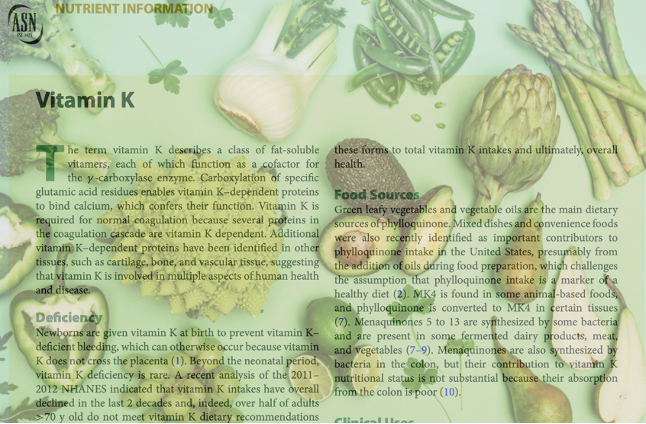Vitamin K describes a class of fat-soluble vitamins, each of which serves as a cofactor for γ-carboxylase enzyme. Carboxylation of specific glutamic acid residues allows vitamin K-dependent proteins to bind to calcium, thus conferring their function.
Vitamin K is required for normal coagulation because several proteins in the coagulation cascade are vitamin K-dependent. Newborns are given vitamin K at birth to prevent vitamin K deficiency bleeding, which can otherwise occur because vitamin K does not cross the placenta. It is uncommon to have a vitamin K deficit beyond the neonatal period.
Analysis of the 2011– 2012 NHANES shows that more than half of adults > 70 years of age do not meet the dietary recommendations for vitamin K. Although this does not manifest as an overt vitamin K deficiency, low vitamin K intake and status have been associated with an increased risk of certain age-related comorbidities, such as cardiovascular disease.
Other tissues, such as cartilage, bone, and vascular tissue, have also been found to contain other vitamin K-dependent proteins, suggesting that vitamin K is involved in multiple aspects of human health and disease.

Shea, M. K., & Booth, S. L. (2022). Vitamin K. Advances in Nutrition, 13(1), 350-351. [Link]
